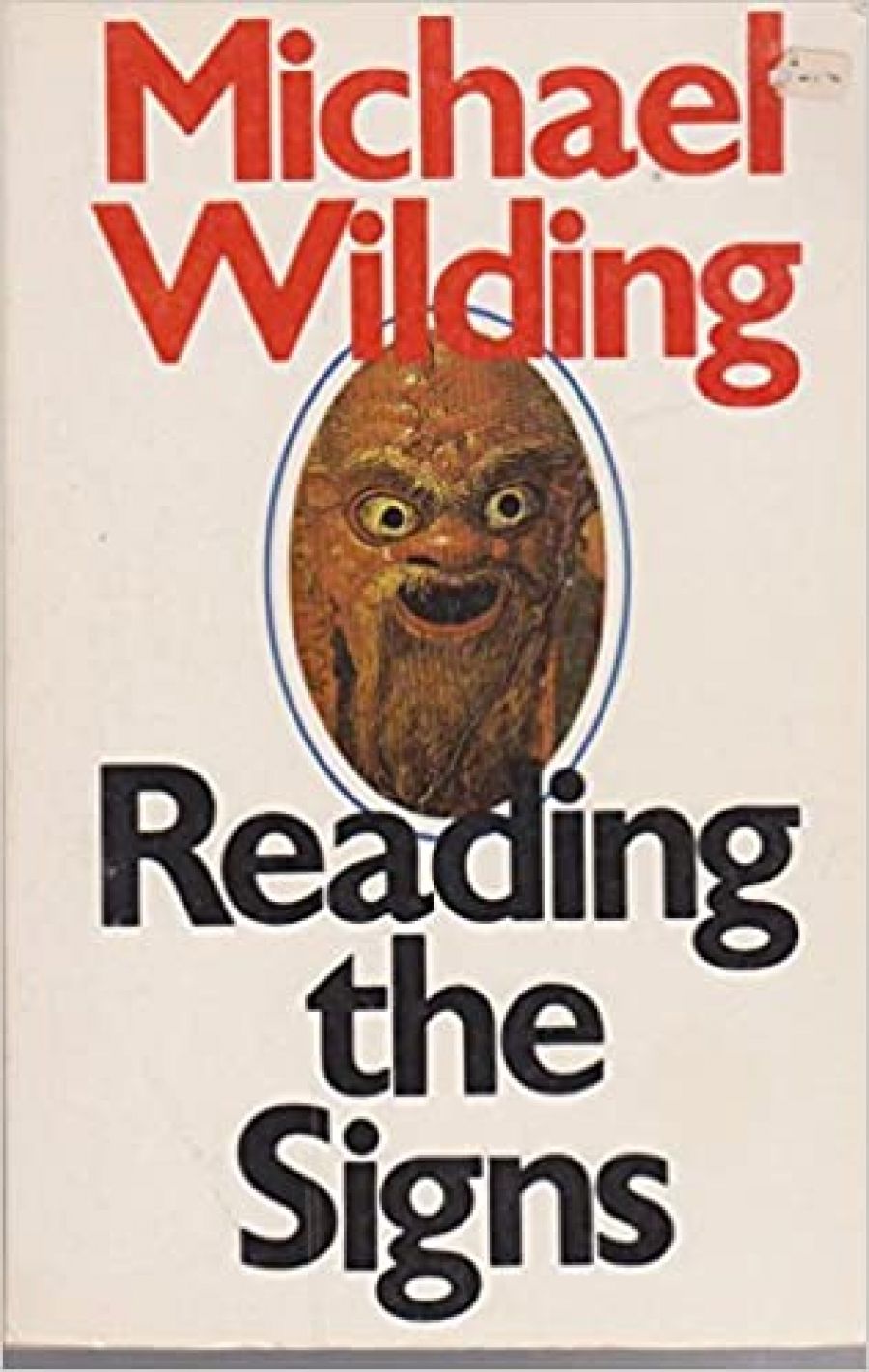
- Free Article: No
- Contents Category: Fiction
- Review Article: Yes
- Online Only: No
- Custom Highlight Text:
This is the largest and most eclectic of Wilding’s four collections of short stories so far. Its 284 pages include stories ranging from ninety pages and two. Mostly written in the first person, they range in space between England and Australia, go back to the childhood of the narrator(s) (sometimes identified as Mike or Michael, making the autobiographical inferences irresistible) and in mode range from social realism through to the surrealistic modes of ‘What it was like, sometime
- Book 1 Title: Reading the Signs
- Book 1 Biblio: Hale & Iremonger, 284 pp, $9.95 pb
Several of the stories are set in England and the title of one of them, ‘Class Feeling’, suggests the central preoccupation. The narrator of most of these is a very bright young boy or man from a working-class background. Several deal with his feelings of tension in his relationship with his father, who is an iron moulder but who is described by the boy’s mother as an engineer. In ‘Class Feeling’, a simple and predictable incident of the narrator refusing to acknowledge his father because of his shame, is stretched out over thirteen pages by a series of manoeuvres. Later English stories detail the narrator’s sexual adventures, in between studying for his finals at Oxford.
When the stories move to Australia, Wilding’s political concerns become more prominent and yet there is a curious clash between those political interests and the frantic pursuit of hedonism – dope and women – that is the most common theme. The story ‘Loose Lips and the Cold Warrior’ opens like this: ‘Loose Lips came up at a party and we tried to have fuck in the outside toilet, inner city living …’ In one way or another, many of the stories are about ‘trying to have a fuck’ and investigating different sexual possibilities. Wilding has allowed his sexual fantasies full play, or else is recording his gratification of those fantasies.
Either way, the preoccupation sits oddly with a story like ‘Welcome O Foreign Writer’, a violently anti-American monologue in which the replies from the unfortunate writer are not given but have to be inferred by the next step in the tirade. The disjunction between the two elements becomes most prominent in the story ‘In the Penal Colony’, a reference not only to Kafka but to Tasmania, where the narrator and some friends are giving a reading tour. Most of the story is familiar and has been done better before, a sad, mechanical saga of dope-smoking, drinking and performing drunk before outraged audiences and the incessant pursuit of sex, but at the same time there are constant references to Marcus Clarke, an author on whom Wilding has written a book and to whom he refers several times in the course of the collection. Clarke, of course, wrote about Tasmania as a particularly brutal colony and the parts where the narrator refers to him or where his prose is actually quoted are a good deal more interesting than the rest of the story.
Reading the Signs is something of a potpourri. There are jokey stories, solemn stories, stories which consist solely of dialogue or which are only monologues or which are not really stories at all, as in the final piece, ‘Contributions towards A New, Australian Poetics selected from the best authors’, which consists of a collection of quotations from various writers about Australia. The constant use of the first person suggests the fairly solipsistic nature of the stories, the narrow confines of the world Wilding deals with.


Comments powered by CComment